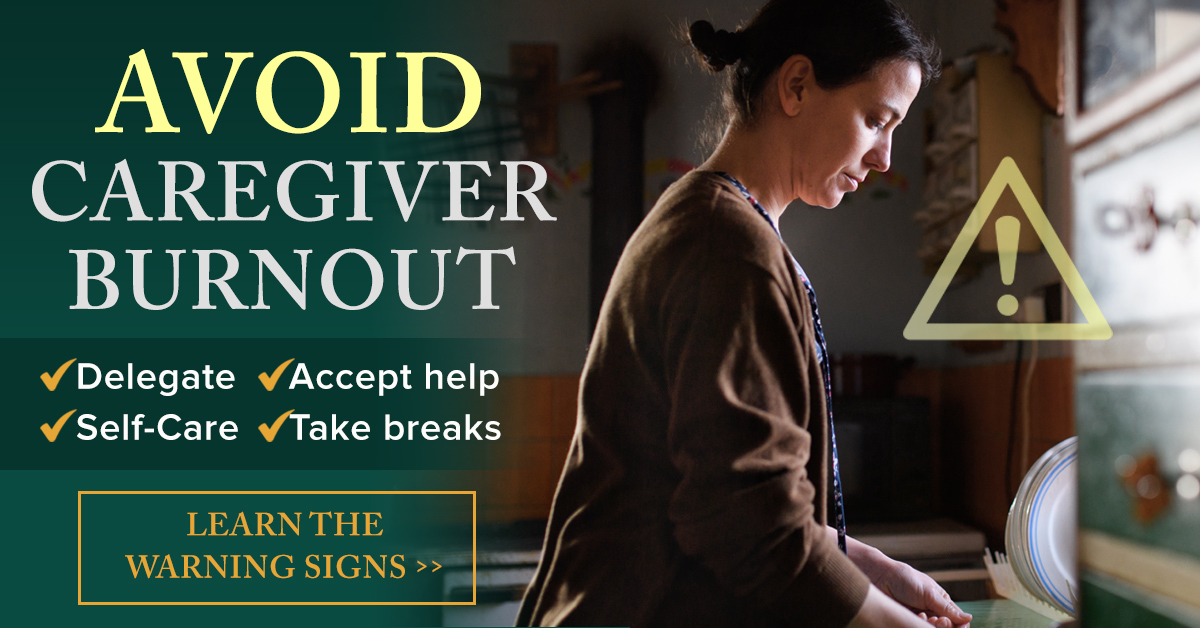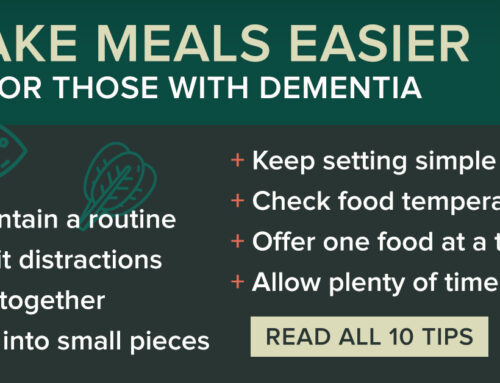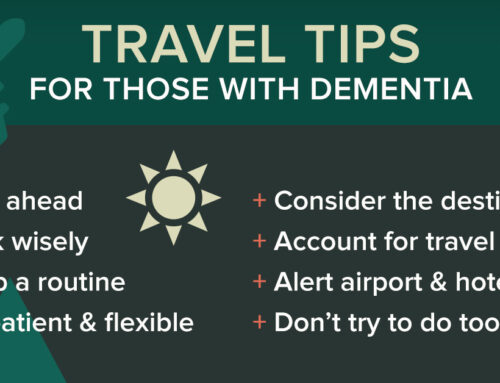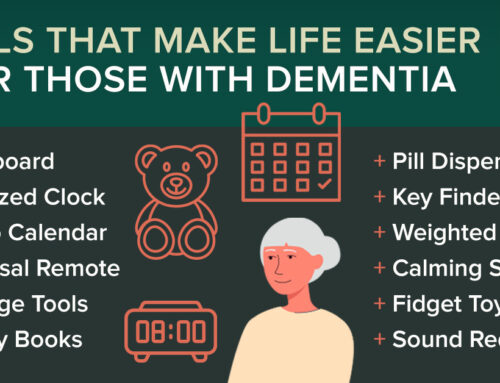Avoiding Alzheimer’s Burnout
Avoiding Alzheimer’s Burnout
Your dad got the diagnosis no one wants to hear – Alzheimer’s disease.
It’s heartbreaking to watch him fall victim to confusion and memory loss.
The fear that he will wander off or have an accident is overwhelming.
His mood swings and unpredictable behavior are exhausting.
24/7, 365 Days a Year
“Caring for someone who has Alzheimer’s disease is a job with no off-time – you’re on duty 24/7, 365 days a year. It can be emotionally, physically and mentally draining,” said Sierra Goetz, co-founder and operations manager at the HomeCare Advocacy Network (HCAN). “Burnout is a very real thing. Most caregivers try to do it all, and that can take a heavy toll. It’s important to understand the warning signs and seek out help if you suspect you’re burning out.”
Signs of Caregiver Burnout
Goetz said common red flags include:
- Lack of energy
- Overwhelming fatigue or worry
- Sleep problems (too much or too little)
- Weight loss or gain
- Losing interest in activities you once enjoyed
- Feeling like caregiving is controlling your life
- Neglecting your own physical and emotional needs
- Becoming unusually impatient, irritable or angry
- Mood swings
- Headaches, stomach aches and other physical ailments
- Difficulty coping with everyday issues
Stop Caregiver Burnout Before it Starts
To help manage stress and stop Alzheimer’s burnout before it starts, Goetz suggests:
Accepting or asking for help. If help is offered, take it. If you have to ask family or friends for assistance, do it. Prepare a list of things others can do, and let them choose a task they’re comfortable with.
Delegating. Make a list of daily tasks and, when possible, delegate. Maybe your spouse can cook dinner a couple of days a week or your children can take care of the laundry.
Taking breaks. Understand that it’s okay take breaks from caregiving. When someone else takes over, get out of the house. Visit friends, go to a movie, get a massage – anything that can help you relax.
Prioritizing self care. Eat well, exercise, relax and get enough sleep. If you’re not healthy, the quality of care you’re able to provide will suffer.
Getting connected. Take time to learn about resources in your community, including options for meal delivery, transportation and housekeeping.
Joining a support group. It helps to know you’re not alone. A support group can validate your feelings, offer encouragement and help you overcome some of the challenges you face. You also will be able to meet new people and perhaps build lasting friendships.
Enlisting the help of a professional caregiver. Whether it’s for a few hours a day or a few days a week, a professional caregiver will ensure your aging loved one is getting the best care possible – while giving you a much needed break.
A Helping Hand
“At HCAN, we help families find the perfect balance between caring for their loved one and taking good care of themselves,” Goetz said. “From companionship to personal and Alzheimer’s care, our trained, professional caregivers are committed to helping you meet the unique needs of your aging loved ones – while giving you peace of mind.”
To learn more about our customized care and respite plans, visit hcanthrive.com or call your local HCAN supported office.






